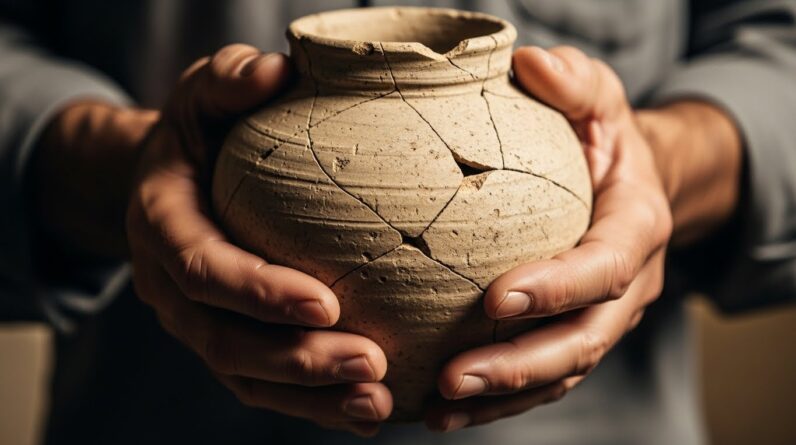When Faith Hurts: Trusting God Through Life’s Darkest Valleys

Introduction
Have you ever felt like your prayers were hitting the ceiling and bouncing back? Like God is distant just when you need Him most? You’re not alone—many people enter seasons where faith feels raw, thin, even painful. Life throws losses, betrayals, chronic illness, or unanswered questions your way, and suddenly the inner voice that once said “trust” feels faint. This matters because how you respond in those dark valleys shapes not only your emotional well-being but your spiritual formation. In this article, you’ll explore what the Bible says about suffering, how to understand God’s presence when faith hurts, and practical steps to keep trusting Him in the hardest seasons. We’ll lean on Scripture, real-life images, and everyday application so you can walk forward with both honesty and hope.
📖 The Bible Foundation
James 1:2–4 (NIV)
“Consider it pure joy, my brothers and sisters, whenever you face trials of many kinds, because you know that the testing of your faith produces perseverance. Let perseverance finish its work so that you may be mature and complete, not lacking anything.”
Read the verse on Bible Gateway: James 1:2–4 (NIV)

When you read James 1:2-4, it can feel jarring. Who tells someone in pain to “consider it pure joy”? James isn’t telling you to fake cheerfulness or deny your pain. He’s reframing suffering as a process that shapes your character. In context, the early Christians James wrote to were facing persecution and trials. James reminds you that hard seasons test and refine your faith, producing endurance that leads to spiritual maturity. That doesn’t erase the hurt, but it anchors meaning in the middle of it—God is at work even when feelings are messy.
🧠 Understanding the Core Truth
The main point in simple words
At the heart of James 1:2-4 is a simple truth: trials test your faith, and those tests can produce spiritual endurance that matures you. You’re invited to trust that pain has a purpose under God’s wise sovereignty.
When you boil it down, James is offering a perspective shift: pain doesn’t mean God has abandoned you or that your faith failed. Instead, trials are a forge. Knowing this doesn’t make suffering pleasant, but it gives you a framework to process it without despair. Your pain can become a place where God grows patience, dependence, and deeper trust. The core truth helps you avoid two extremes: blaming God for every hurt, or pretending that faith guarantees a trouble-free life.
🌊 Going Deeper — The Hidden Meaning

What’s happening under the surface
The deeper lesson behind James is about identity formation. When faith is untested it can stay theoretical—nice ideas you nod at on Sunday. But when hardship arrives, it strips away comfortable illusions and forces you to ask: Who is God to me when everything falls apart? This is where faith moves from head knowledge to relational trust.
Think of Peter walking on the water in Matthew 14. He steps out by faith, but when he looks at the winds, fear pulls him under. Jesus rescues him and asks the same thing He asks you: why did you doubt? Trials expose where you truly place your trust. They also provide opportunities to see God’s faithfulness up close—small rescues, unexpected peace, supportive people—things that cement your trust more solidly than when life is easy.
💡 Modern Connection — Relevance Today
How does this apply to your everyday life?
In a world of instant answers and curated highlights, suffering feels especially disorienting. You might compare your pain to others’ polished lives or expect faith to remove discomfort on demand. But the Bible’s wisdom helps you navigate modern stressors—job loss, infertility, mental health struggles, grief—by offering a spiritual lens that sustains you beyond quick fixes.
Faith in Hard Times shows up in messy realities: staying present with a grieving friend instead of offering platitudes, seeking counseling while you pray, or continuing to worship even when your heart is heavy. It’s not a guarantee you’ll avoid pain; it’s a promise that God can use pain to refine you, teach you compassion, and redirect your priorities toward what lasts.
❤️ Practical Application — Living the Message

Steps you can take this week
When faith hurts, you need concrete habits that keep you tethered to God and to community. Begin with small, faithful practices: speak honestly to God in prayer, open one page of Scripture a day (start with the Psalms), reach out to a trusted friend or pastor, and consider professional help if your pain is overwhelming. Routine shapes resilience.
Allow grief and doubt to be seen—journaling helps—with questions and laments. Stay in community even when you want to isolate; being known in your brokenness is part of God’s healing work. Finally, serve in small ways when you feel able; giving attention to others often reorients your heart from pain to purpose. These steps won’t erase suffering, but they invite God’s presence into the ordinary, practical rhythms of your life.
💡 Fun Fact Box
Did you know that modern neuroscience shows grief and chronic stress physically change brain function—especially in areas governing emotion and memory? Yet research also finds that supportive relationships and purposeful routines help the brain rewire toward resilience. That scientific insight aligns with Scripture’s emphasis on community, ritual, and hope as healers of the soul.
Short List — Key Takeaways
- Trials can refine your faith; they often produce endurance and maturity.
- Honest lament is biblical—don’t feel pressured to sound upbeat before God.
- Faith in Hard Times is lived in small, consistent practices: prayer, Scripture, community, and service.
- You don’t walk alone—seek trusted support and professional help when needed.
👉 Q&A
Q1: Will trusting God make the pain disappear?
Answer: Trusting God does not guarantee the immediate removal of pain. Scripture teaches that suffering is part of the fallen world and can serve purposes like molding character, increasing compassion, or redirecting your priorities (see James 1:2–4 (NIV)). Trust is about relying on God’s presence and promises amid pain, not a promise that He will always take discomfort away instantly. For practical steps on living in trust, you might find this post helpful: How To Trust God When Everything Falls Apart
Q2: How do I pray when I feel angry at God?
Answer: Be honest—Anger isn’t off-limits in prayer. The Psalms are full of raw lament, showing that authentic faith expresses pain and complaint to God (see Psalm 13). Start with, “I don’t understand,” or “I’m angry,” and then ask God for help to hold the tension. Honest prayer opens the way for healing and deeper intimacy.
Q3: How can the community help when my faith hurts?
Answer: Community provides tangible proofs of God’s presence through listening, practical support, and prayer. The New Testament frames the church as a body that bears one another’s burdens (see Galatians 6:2). When you share your struggle, you invite others to be God’s hands and feet—sometimes that means meals, a listening ear, or consistent check-ins. Genuine community reduces isolation and helps you see God’s care through people.
Q4: Does suffering mean I did something wrong?
Answer: Not necessarily. Suffering isn’t always a direct result of personal sin. The Bible records many godly people who suffered for reasons unrelated to their moral choices—think of Job, who endured loss despite his integrity (see Job 1:1–22). While sin can cause pain, not all hardship is punishment. Sometimes suffering exists because we live in a broken world; at other times, it becomes the context for growth and testimony. For more on suffering and meaning, you might read: Job’s Faith: What We Can Learn From His Trials
Q5: How can I keep hope when answers don’t come?
Answer: Hope is often a decision anchored in God’s promises rather than situations. Scripture reassures you that God works all things for good for those who love Him (see Romans 8:28). Hope can be strengthened by remembering past faithfulness, practicing gratitude for small mercies, and staying engaged in worship and Scripture. Short spiritual disciplines help the soul lean toward hope even when outcomes remain uncertain. Consider resources like Finding Hope When Life Feels Overwhelming: A Bible-Based Guide
🙏 Conclusion & Reflection
When faith hurts, the valley feels long and the climb steep. Yet the Bible invites you into a courageous, honest relationship with God where doubt and grief can coexist with trust and hope. James 1 reminds you that trials are not meaningless; they are shaping you into maturity and endurance. Keep taking small steps—speak honestly to God, stay connected to caring people, and practice the disciplines that cultivate resilience.

A short prayer you can use now: “Jesus, I bring my hurt and my questions to You. Help me trust You when I can’t see the way. Grow my faith through this pain and surround me with people who reflect Your love. Amen.”
Explore More
For further reading and encouragement, check out these posts:
👉 7 Bible Verses About Faith in Hard Times
👉 Job’s Faith: What We Can Learn From His Trials
👉 How To Trust God When Everything Falls Apart
👉 Why God Allows Suffering – A Biblical Perspective
👉 Faith Over Fear: How To Stand Strong In Uncertain Seasons
👉 How To Encourage Someone Struggling With Their Faith
👉 5 Prayers for Strength When You’re Feeling Weak

📘 Jesus and the Woman Caught in Adultery – Grace and Mercy Over Judgement
A powerful retelling of John 8:1-11. This book brings to life the depth of forgiveness, mercy, and God’s unwavering love.
👉 Check it now on Amazon 🛒💥
🔥 “Every great message deserves a home online.” 🌍💬🏡
Don’t let your calling stay hidden. Start a Christian blog or website using Hostinger — with 99.9% uptime, a free domain, and SSL, your voice can shine for God’s glory anytime, anywhere.
💥 Begin today. 🛒 Try it RISK-FREE! ✅
✝️ “Your body is God’s temple — care for it with purpose.” 💪💖🏛️
Renew your energy and restore balance naturally. Mitolyn helps support a healthy metabolism, giving you the vitality to live out God’s calling with strength and confidence.
🔥 Unlock Your Metabolic Power! ⚡Burn More Calories & Feel Great With Mitolyn. 💪
👉 Start Today. 🚀 Check Price Now. 🛒💰
💰 As a ClickBank & Amazon Affiliate, I earn from qualifying purchases.
📖 Acknowledgment: All Bible verses referenced in this article were accessed via Bible Gateway (or Bible Hub).
🚀 Want to explore more? 👉 Dive into our new post on Why Jesus? and experience the 🔥 life-changing truth of the Gospel!








